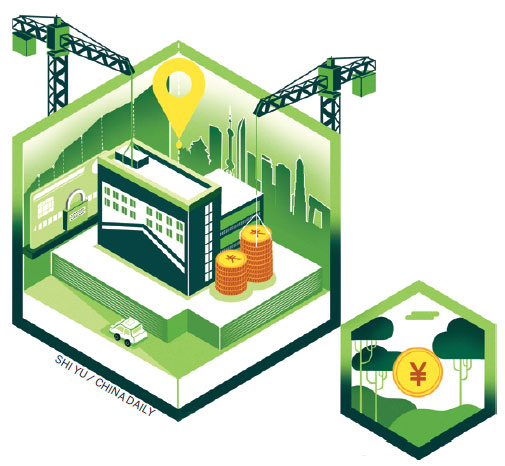Developing socialist ecological civilization
By Zhang Yunfei | China Daily | Updated: 2019-08-26 07:18

Since its founding, New China has been highlighting the importance of preserving resources, protecting the environment and promoting the construction of ecological civilization, making significant progress in those areas.
In the past 70 years, China has launched a series of green public campaigns including those on saving energy, afforestation, conserving water and soil, preventing natural disasters and improving public health.
In the 1950s, Chairman Mao Zedong gave a call to turn the country green. In 1978, former leader Deng Xiaoping advocated voluntary tree planting nationwide. On Nov 25, 1978, China officially launched the Northwest-North-Northeast China Shelterbelt Program. By the end of 2018, the number of person-time involved in the voluntary tree planting campaign had reached about 15.5 billion, resulting in the planting of about 70.5 billion trees. The massive green campaign in China has also contributed to the global afforestation campaign.
Since the 18th National Congress of the Communist Party of China in November 2012, the Party has advanced a series of new thoughts and strategies, especially Xi Jinping Thought on Ecological Civilization, for the construction of ecological civilization. Xi's thought on ecological civilization includes a series of new concepts on ecological civilization, such as the harmonious co-existence of human beings and nature, lucid waters and lush mountains are invaluable assets, and a good ecological environment is most conducive to improving people's livelihoods.
Xi Jinping Thought on Ecological Civilization is a significant part of Xi Jinping Thought on Socialism with Chinese Characteristics for a New Era and the scientific guideline for China's ecological civilization construction.
Since the 1950s, China has been making great efforts to strike the right balance between development and the environment. In 1956, China enacted its first industrial pollution prevention and control regulation. In 1972, it advanced the general policy on environmental protection work which included overall planning, reasonable layout and a comprehensive utilization program. In the same year, it required the construction of factories and recycling projects to be synchronized. And in 1983, the central government advanced that ecological construction, urban construction and environment construction be made synchronous, as well.
Following the 18th CPC National Congress, China has launched three major action plans for the prevention and control of air, water and soil pollution, which have made significant progress. For instance, Beijing, which used to suffer from air pollution, has dramatically reduced its PM2.5 intensity-from 89.5 micrograms per cubic meter to 58 micrograms per cubic meter.
China enacted the world's first national sustainable development strategy, Agenda 21, in 1994. And in June 2007, it became the first developing country to prepare a plan to cope with climate change: China National Plan for Coping with Climate Change.
From 2005 to 2010, China reduced its energy consumption per unit of GDP by about 20 percent, making a big contribution to global energy conservation and emission reduction efforts. After the 18th Party Congress, China has issued the National Plan on Implementation of the 2030 Agenda for Sustainable Development and the National Plan for Coping with Climate Change (2014-20), in order to build a community with a shared future for mankind and actively promote the construction of the Green Belt and Road as part of the Belt and Road Initiative.
China emphasizes the importance of institutional innovation in the construction of ecological civilization. Since 1978, China has made energy saving and environmental protection as one of its basic State policies. In November 2012, the 18th Party Congress advanced that the CPC leading the Chinese people to build a socialist ecological civilization be incorporated into the Party Constitution. And in 2018, China incorporated green development, beautiful China and ecological civilization into the country's Constitution.
All these show ecological civilization construction has become the common will and mission of the Party, the country and society. After the Third Plenary Session of the 18th CPC Central Committee in November 2013, China accelerated the process of modernizing national governance for ecological civilization construction.
And the more than 40 reform programs on ecological civilization construction that China has implemented since the 18th Party Congress has been guiding the country toward a new era of socialist ecological civilization.
The author is a researcher at the National Academy of Development and Strategy, Renmin University of China. The views don't necessarily represent those of China Daily.
























